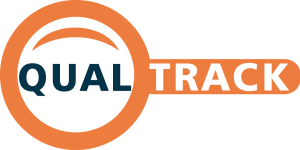Quality assurance is a critical process for Institutions of Adult Learning and Education to ensure the continuous improvement of their educational programs and services. A self-evaluation questionnaire is a valuable tool that enables institutions to gather data, identify areas for improvement, and make informed decisions to enhance the quality of education they provide. This methodology outlines the steps and procedures for conducting a self-assessment using a self-evaluation questionnaire.
Starting an evaluation process involves
– the decision to carry out an evaluation assessment with a high commitment by the management, including an internal decision on the aims and purposes of the evaluation,
– the distribution of tasks and responsibilities within the quality team, and
– the decision on time and resources allocated to the process.
When an institution decides to undertake the evaluation, it will start with the self-assessment that is based on a questionnaire and is accessible online on the Qualtrack Platform. The quality team should set up coordination meetings to keep the process going.
The questionnaire for self-assessment contains questions in six main categories: Entry requirements, Institutional background, Lecturers and Trainers, Effectiveness of the Education Process, Learning environment, Services to learners.
- The first set of questions serves as entry criteria for entering the evaluation process. It is assumed that the evaluation will be undertaken by typical education institutions that have some history and own premises.
- The questions about the Institutional background serve to ensure that the institution has a clear vision, respects some fundamental moral values and principles of good conduct, and has internal and external communication processes.
- In category Lecturers and Trainers, the proportion of lecturers with special qualifications for teaching activities (documented according to the described standard, e.g. qualification exam, state exam in relevant fields, certificate from a professional course for the development of teaching competences, etc.) will be evaluated within the educational institution, as well as support for the development of lecturers by the educational institution. Also the linking of the educational program according to the customer’s requirements with the practical implementation of the teaching or the ability of the lecturers to continuously verify the development of the competences of the participants in the education will be evaluated.
- The Effectiveness of the Educational Process is measured and it focuses on the course of education itself, especially from the point of view of the analysis of educational needs, the adaptation of the educational offer to the needs of the client and the results of the analysis, the ability to verify the achievement of the goals set in the educational offer, the ability to create educational development plans at the request of the client, enabling the maintenance of the knowledge level of the participants after the end of the course, etc.
- The Learning environment is an integral part of teaching, and therefore must be provided by an educational institution of adequate quality, in terms of technical and IT equipment and didactic tools. The premises where teaching takes place will be evaluated, as well as, for example, original materials to support teaching (either self-created or with the specified authorship), classroom equipment, equipment corresponding to the nature of the teaching, use of multimedia didactic aids, etc.
- The customer approach (Services to learners) of educational institutions is assessed mainly from the point of view of flexibility and comfort for the customer. This criterion includes the width and availability of the educational offer, the existence of contact staff and qualified staff for educational consultancy, the ability to quickly implement the courses published in the offer, and this in place and time adapted to the customer’s wishes, the ability to provide other services in connection with educational activities, etc.
The main questions are formulated as yes / no questions. There are also sub-questions that ask for more details, such as to describe a certain practice or a process. It is also expected to provide evidence to support the answers – to attach a document or a link to the webpage where such information can be found. Some questions might appear twice in the questionnaire. It is just to make sure that the standards are clearly stated.
The institution answers openly and sincerely all questions bearing in mind that all answers need to be well-founded and documented and eventually presented to the external evaluator.
The evaluation process is not meant to cause extra administrative burden for an institution so there is no need to prepare extra documents or set up extra processes. The institution is just expected to show how it realizes something in practice.
Of course, in some cases, the institution will need to change some of its internal processes or introduce new ones. Preparing for the self-assessment and filling the questionnaires therefore might take several weeks, depending on the experience of the institution with such procedures and compliance with the processes.
Once the process is finished and the questionnaire is satisfactorily fulfilled, it is submitted online to the rating institution. The next stage is the visit by an external assessor or evaluator.
Continuous Monitoring and Review
The whole point of evaluation and self-assessment in Adult Learning Institutions is to set up an ongoing process aimed at enhancing educational quality.
The institution should then develop an action plan based on the identified issues and recommendations from external evaluators. It should monitor the progress of the implemented actions regularly. It is advisable to conduct periodic self-assessments to track improvements and identify new areas for quality enhancement.
